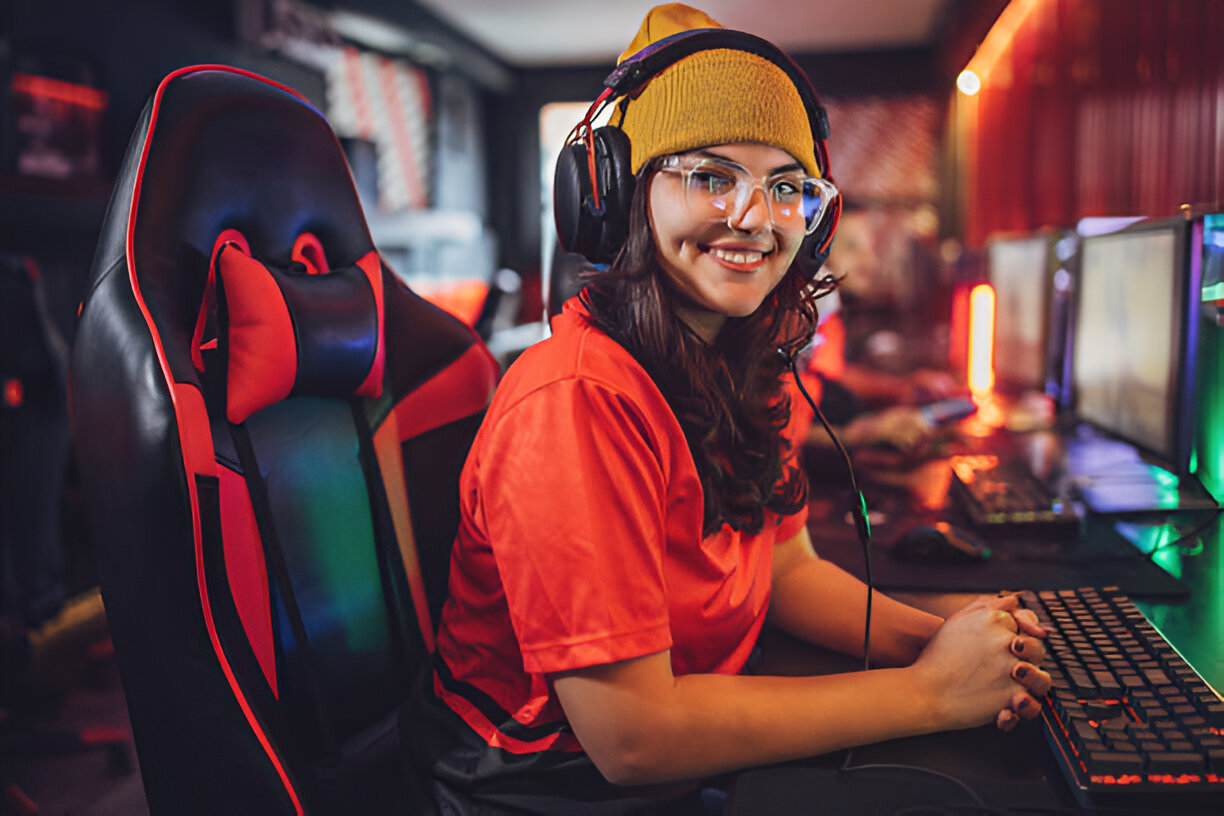The world is advancing at a rapid pace. Every year we are seeing huge technological leaps that would have previously taken decades. The Apple Vision Pro goggles have taken augmented reality to a new level. Smartphones are becoming more powerful with each iteration. And AI now has the ability to generate stunning works of art with ease.
As technology advances we have also seen gaming become far more popular. Gaming is now a multi-billion dollar industry and arguably the most popular hobby on the planet. But, like with any technology, there is a lot of debate about whether gaming is good for you. In the past it was firmly believed that gaming was an unhealthy habit. And there was little room for debate against this assertion. But these days the debate isn’t as cut and dry.
Today we are going to be taking a deep dive into the great gaming debate. Examining the arguments on both sides to see if gaming really is good for you. Or is it as unhealthy as all its detractors claim.
Gaming Addiction
The main issue gaming’s reputation faces is the fact that gaming is extremely addictive. Gaming addiction was officially added to the DSM back in 2013. But some studies suggest it has been around since the 80s. As long as gaming has been widely available, there have been those addicted to it.
Like any addiction it can have devastating consequences for someone’s life. The physical symptoms involved are numerous. Primary amongst them is fatigue, irritability, consistent headaches, and neglecting personal hygiene. It has also been proven to impact the mental health and social lives of those who suffer.
As gaming has become more widespread, there has been a huge increase in those suffering from gaming addiction. And the numbers are likely only going to rise as companies focus on making their games more addictive than ever before.
But we have to be careful here. As with a lot of cases of addiction, it isn’t necessarily gaming that led to the addiction. Often there are far deeper psychology issues at play in someone who falls to addiction. Trauma, depression, family issues, health issues. Any of these can lead someone to fall prey to addiction. So, while gaming addiction is a serious issue, the blame does not lay with gaming itself.
A Social Boost
It wasn’t too long ago that the stereotypical image of a gamer was a nerdy loner who didn’t have any friends. And there was some truth in this. Gaming was seen as an escape for a lot of people. But, as multiplayer gaming has advanced and gaming has become more popular, we have seen it shift towards a far more social hobby.
Today gaming is arguably one of the most social hobbies on the planet. It allows you to connect with people from all around the world. Working with other players, or against them, to achieve your goals. The countless thousands of Minecraft multiplayer servers is proof of just how social gaming has become. It allows people to be part of a community. To find a place where they belong. And where they can feel like their contributions matter. And this is massively useful for boosting someone’s self-esteem.
And this is a huge health benefit for a lot of people. A lot of people struggle to socialize with others in reality. Gaming has given them the chance to fulfill their social needs in a safe and familiar environment. Studies have shown this has also been very useful for autistic children and those who suffer from other social disabilities.
Cognitive Development
Gaming isn’t just a great platform for social interaction. It is also a useful tool for mental and physical development. Games have been used in education long before video games existed. In fact, most studies have shown that gamifying something is one of the best ways to help someone learn. It is why apps like Duolingo are so popular.
There are a huge number of education games out there. Most schools will use these games to teach spelling, math, and even coding. The puzzle game genre is a fantastic tool for helping improve one’s mental skills. I was a huge fan of the Professor Layton games while growing up for just this reason. They had an engaging story and were filled with numerous puzzles that challenged me in ways a lot of other games didn’t.
A good game forces us to think outside the box. Presenting us with a seemingly impossible challenge and allowing us to adapt our thinking to overcome it. It is often said that gaming has no transferable life skills. But this is so far from the truth. Gaming teaches us perseverance. It teaches us dedication. It forces us to learn that, no matter how often we fall down, the only way to advance is to get back up and try again from a new angle.
So, while gaming definitely does have some very unhealthy elements too, overall we would say that gaming is good for you. But, most importantly, it is only good for you when done in moderation.
